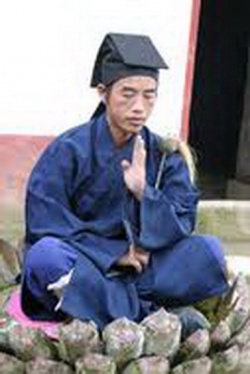Buddhatrāta
Buddhatrāta (佛陀多羅, 7th–8th centuries) means protected by Buddha. He was a Tripiṭaka master from Kophen (罽賓, an ancient kingdom, also called Gandhāra, in present-day Kashmir, northern Pakistan, and eastern Afghanistan area).
According to Dharma Master Zongmi’s (宗密, 780–841) commentary (T39n1795, 0528b11–14), in 693, the second year of the Changshou (長壽) years of Empress Wu (武后則天) of the Tang Dynasty (618–907), Buddhatrāta took Sanskrit texts to the city of Luoyang (洛陽) and stayed at the White Horse Temple.
There he translated from Sanskrit into Chinese the Mahāvaipulya Sūtra of Perfect Enlightenment, and his oral translation was recorded and polished by Qi Duyü (其度語).
Buddhatrāta’s translation of the Mahāvaipulya Sūtra of Perfect Enlightenment is included as text 842 (T17n0842) in the Chinese Canon. Some scholars suspect that it is an apocryphal text written in China because nothing more is known about Buddhatrāta.
However, this sūtra is highly valued in China.
